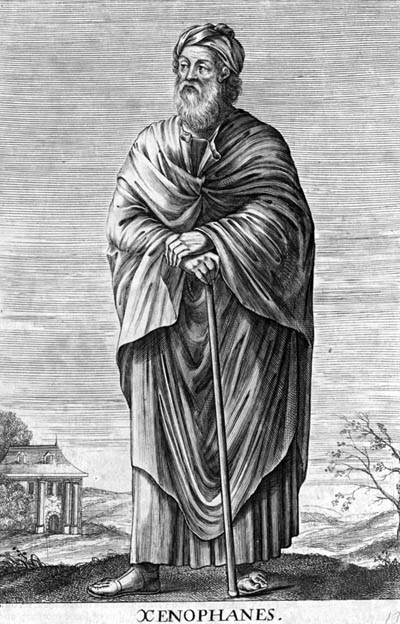"Homer and Hesiod have ascribed to the gods all deeds
which among men are a reproach and a disgrace:
thieving, adultery, and deceiving one another."
- Xenophanes, quoted by Sextus Empiricus in Against the Mathematicians.
There was once a religion whose adherents believed that God sometimes spoke falsehoods. One day a lover of wisdom came and rebuked them for believing this about God. They first replied by denying that they believed this about God. "We do not call it speaking falsehoods," they said, "We think of it as God's speech not being restricted to matching reality." The lover of wisdom replied, "If it were speaking falsehoods, what would be different about it?" They were silent, looking down anxiously and shuffling their feet. Finally, their high priest responded, speaking not to the wisdom lover, but to the others concerning the wisdom lover, saying, "The power of the a priori notion that God's speech must match reality is patent in him." The others all immediately looked relieved, and joined in patronizing derision of the wisdom lover. In response, the lover of wisdom walked away quietly. That evening he nailed the following notice to the door of their temple: "Here a god is feared; here no god is worshiped."
When the notice was discovered the people rioted, dragged the wisdom lover outside the city and picked up stones to kill him. "Why do you seek to kill me? he asked. "Because you falsely claimed that we do not worship God," they replied. The lover of wisdom looked intently at them and said, "If my speech did not match reality, then I have imitated the God you claim to worship, in which case you should praise me. But if I did not speak falsely, then why are you angry?" No one could answer him. The wisdom lover turned and walked through their midst toward the neighboring city, and no one touched him or said another word to him.






